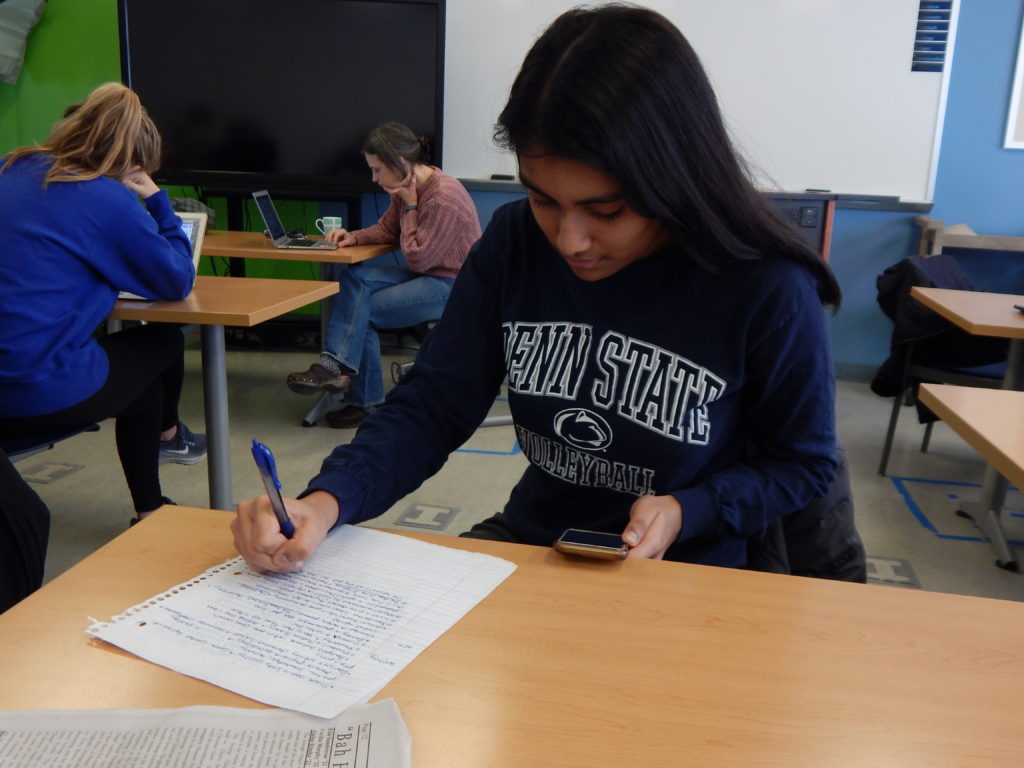Peter Woodville ’21

As academic dishonesty continues to be a major problem at EA, administrators endeavor to address the problem through new policies. This year in particular, the administration has tried to reduce cheating by implementing a phone basket in every classroom and requiring students to place their phones in the basket before every class. Teachers are also required to make a new test for students who miss the original test date due to sickness. Despite these measures, cheating remains a great subject of concern.
Michael Wennemer, Class of 2021, weighs in on the issue, stating: “I think that cheating has no place here at EA, but unfortunately, it is probably more common than we think because much of it goes undetected.” Zachary Richards, Head Dean of the Class of 2021, agrees: “How big of a problem [cheating] is at EA, I really don’t know. I am sure much of it goes unnoticed.” Unfortunately, because of the nature of cheating, it is hard to find a fixed solution. Jennifer Maier, Head of the Disciplinary Committee, cited some quick and easy ways: “Obviously, teachers like using things like Respondus (a computer program that makes students unable to change tabs while taking a test) for quizzes on Canvas, running things through Turnitin.com (a site that scans submissions for plagiarized content), or even just separating desks to minimize cheating.” Although this has helped reduce cheating in some ways, it has not eliminated the problem completely.
As for why students cheat, Alex Zhou, Class of 2021, shares his opinion: “I think it is just that we live in such a stressful environment. I don’t think that students necessarily do it to be a bad person, but I think they sometimes may take a short-cut, not realizing the long-term consequences.” Richards suggested that for a solution to the problem, education is key: “I don’t necessarily think if a student cheats that means he or she is a bad person, I just think it’s that they don’t know or understand the implications of their actions.” Richards also stressed the importance of teaching students at a young age, so by the time they reach Upper School, it is already ingrained in them: “I think that [teachers] have to do a better job of teaching students about cheating at a younger age, in Middle and Lower School, so that when they come to Upper School, they know what is right or wrong.” Unfortunately, the issue is unlikely to be resolved anytime soon, and if anything, will only increase with the development of technology. While citing the benefits of technology, Richards, also expressed his concerns with how it can enable a student to cheat: “While [technology] has been great in so many ways, it does bring a number of problems as well. Not just cell phones, but also plagiarism.” He admitted that there are many resources out there that can “get kids in trouble.” He concludes, “With all this new technology, it’s great when we give you access to it, but at the same time we have to get you to understand what’s right and what’s wrong. And I think that helps with reducing cheating.”